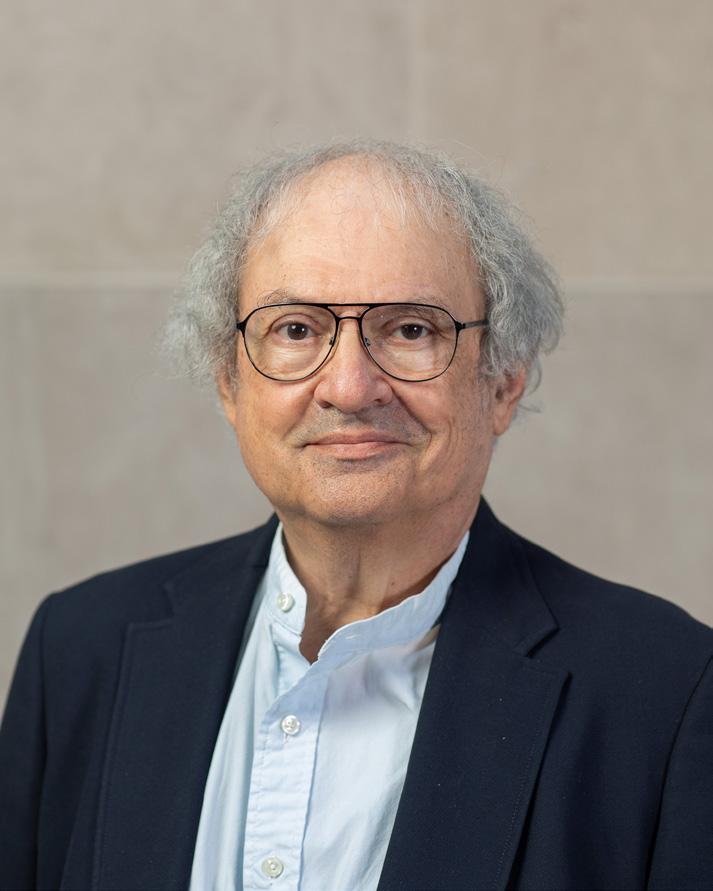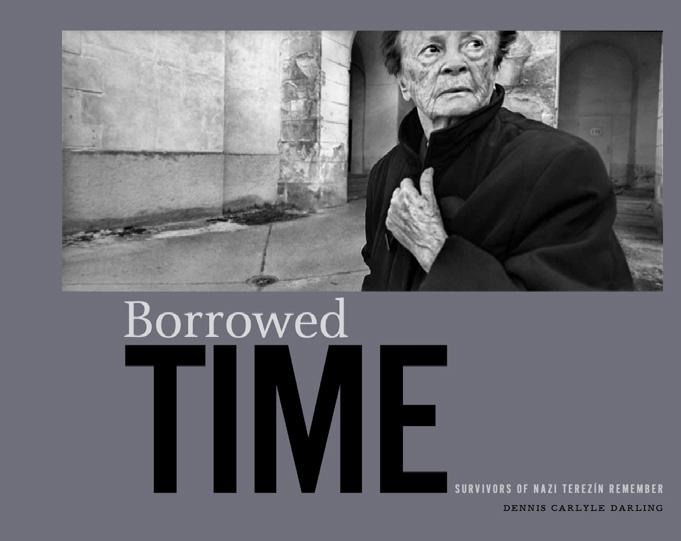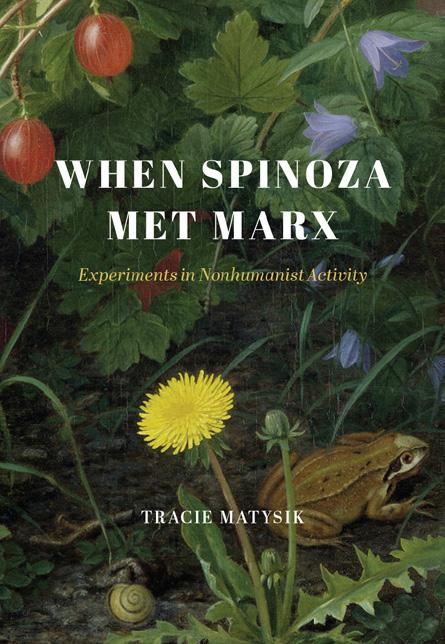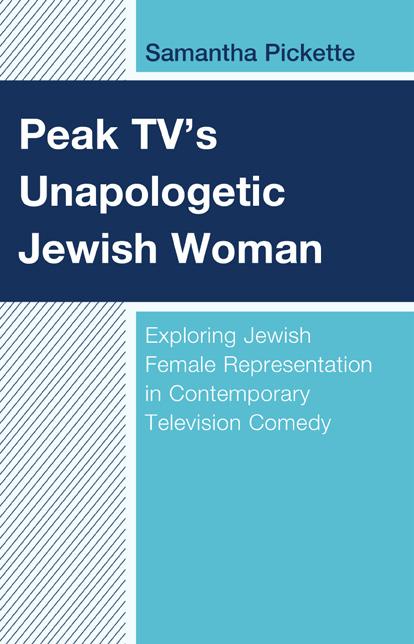
12 minute read
FACULTY TRANSITIONS
Professor Michael J. Churgin will be retiring from the School of Law faculty at the end of August, having arrived initially in 1975.

Advertisement
During that forty-eight year period, he regularly participated in Jewish programming at UT. From the days of DOALL with Harold Liebowitz and Irving Mandelbaum, to the service of Seth Wolitz as Gale Professor, Michael was a presence at seminars and presentations. He attended the Jewish graduate student/faculty brunches at Hillel and served several terms on the Hillel board as a faculty representative. More recently, he has actively been part of Schusterman Center programming and plans to continue attending events as an emeritus professor.
Professor Davida Charney is retiring after twenty-six years of service in the Department of Rhetoric and Writing. In addition to serving on the Schusterman Center’s Faculty Executive Committee and various other committees, she has taught writing-flag classes in Jewish Studies such as “Persuasion in Biblical Times and Places” and “Ancient Jewish and Greek Roots of Social Justice.”
Students who took the “Persuasion” class analyzed three types of texts from the Hebrew Bible in which people interact with God: psalms, narrative dialogues, and prophecy. All three illustrate not only that the God of the Hebrew Bible was open to certain types of challenge, but that God might be persuaded to change plans when approached appropriately. Increasingly students entered the class with no religious training whatsoever, but all emerged with a better understanding of scholarly rather than doctrinaire systems for interpreting sacred texts.
Charney’s early scholarship focused on written discourse in the academy, especially in STEM disciplines. But about 15 years ago, she began investigating the rhetoric of the biblical psalms. Along with several journal articles on the subject, her book Persuading God (Phoenix Sheffied Press) appeared in 2015. Recently, she has been conducting research on Jewish liturgy and rabbinic sermon writing (homiletics). She plans to continue this work in retirement in the Philadelphia area.

Professor David F. Crew will retire after serving as a faculty member in the Department of History at UT Austin since 1984. Professor Crew, whose research interests include the history of popular culture and consumerism in twentieth-century Germany and Europe, the history and politics of memory, and the visual history of Germany in the twentieth century, has published multiple books on the history of modern Germany and popular culture. During his time at UT he taught dozens of courses on the history of Nazi-era Germany, and since 1993 he has been a faculty member of the Normandy Scholar Program.
In retirement, his main goals are to continue working on his next book, Disturbing Images: Photographing Hitler’s Third Reich, and to travel to parts of Europe he has not yet visited.
How did you become interested in Yiddish?
I became interested in Yiddish while living in Moscow. I came to suspect that Yiddish speech style was the link between three things I held dear: the early 2000s Moscow klezmer scene, Isaac Babel and his cohort of modernist writers from Odessa, and the cult Soviet cartoons I watched in reruns. My curiosity took me to Yiddish classes in Tel Aviv, Vilnius, at Yiddish Farm in New York, and in Moscow, where I worked with Yiddish folklorists, linguists, and translators. In these communities, I found concentrated and complex versions of the kinds of thought, language play, and artistry that had drawn me to Russian literature and Soviet culture in the first place. When I finished graduate school, I had decided to dedicate my career to Yiddish and the community that shares them.

Tell us a little about your research in Yiddish.
My research is about the Yiddish speech culture whose echoes I detected in Moscow in the early 2000s. My dissertation looked at materials ranging from elite plays to children’s poems to analyze how, in the 1960s and 1970s, Soviet artists made strategic use of a certain kind of Yiddish style in Russian. It also explored how a parallel style is detectable in American texts of the same era. It showed how this secular, but identifiably Jewish style contributed to a postwar sensibility that was appealing to Jews and nonJews in both places. I argued that, in a postwar era when ideologies of monolingualism stimulated the countercultural desire for language that felt forbidden, forgotten, dangerous, or playful, Jews and Jewishness made Yiddish uniquely well suited to fulfilling these desires. In other words, my research attempts to pinpoint why, be it in apartment concerts in Moscow or among listeners of Folkways records in New Jersey, Yiddish was so good at forging creative fellowship, even, or especially, among people who spent most of their time speaking Russian or English.

What is your favorite Yiddish author and why?
My favorite Yiddish writer or, at least, the writer with who is closest to my heart, is the Soviet Yiddish poet Shike Driz. Driz came of age in the modernist days of the late 1920s. Later, despite the liquidation of Soviet Yiddish public culture in the 1940s and 50s and air of the secrecy that surrounded Jewishness thereafter, he adapted prewar Yiddish literary forms to the tastes of postwar audiences with remarkable savvy and success. In the 1960s and 1970s, he achieved renown as a master of lyrical verse among Yiddishists, a counterculture muse among “underground” and avantgarde poets and artists in Moscow, and an entertainer among hundreds of thousands of children who read his poems in Russian translation. One popular poem from the 1960s, for example, features a kind of anti-hero mouse by the name of Mizl-Mayzl. MizlMayzl’s name recalls a string of prewar Yiddish games, fables, and modernist poems. At the same time, the mouse’s southernness, his good-natured bedraggledness, his outsiderness, and his desire for bushy facial hair all appealed to the sensibilities of readers in Moscow. This was a time when many urbanites were growing beards in the style of Ernest Hemingway and singing Yiddish-inflected Russian outlaw songs. I love Driz for what he could do with Yiddish in this time and place.
What are you looking forward to teaching at UT?
I am greatly looking forward to teaching Yiddish. When all is said and done, my research on Yiddish culture and my teaching are about the same thing: the human connection and creativity that Yiddish makes possible. When I learned to teach Yiddish, I found that making up activities out of literary texts and songs allowed me to build the kind community that I admire from afar in my research. It is this dedication to Yiddish as a collective, inventive enterprise that drew me to UT’s Yiddish program and to Itzik Gottesman’s work. As an instructor at UT, I want to add to this double act of preserving and creating Yiddish culture.
Pascale Bos received the Rapaport Fellowship during 2022–23, which allowed her to finish up two articles: “Sexual Violence and the Holocaust: What can we learn from Holocaust Survivors 75 Years after the Fact?” forthcoming in The Future of Holocaust Testimonies: Preserving, Researching, and Re-Presenting Survivor’s Voices and “Barter, Prostitution, Abuse? Reframing Experiences of Sexual Exchange during the Holocaust,” forthcoming in The Journal of Holocaust Research She presented at the Mandel Center for Advanced Holocaust Studies at the USHMM at the conclusion of her Pearl Resnick Fellowship and gave a presentation of her work at the Rapoport Fellows Colloquium: “Rape, Barter, Prostitution? New Insights on Sex and Sexual Violence during the Holocaust.” ago, of which Eaton, then a student, played a role in organizing. He taught “Civil Society Activities Promoting Coexistence, Shared Society and Peace in Israel/Palestine,” which included a 11-day field study in Israel. 2023. He manages the Global Career LaunchIsrael Program, which will embed UT Austin undergraduate and graduate students during summer 2023 and 2024 in nonprofits, social enterprises, and philanthropic foundations dealing with issues related to shared society and improving the situation of the Arab-Palestinian population in Israel.
Dennis C. Darling completed, Borrowed Time: Survivors of Nazi Terezín Remember, a book of photos and interviews with survivors of Terezín, forthcoming in early 2024 at UT Press.

Karen Grumberg published her edited volume, Middle Eastern Gothics: Literature, Spectral Modernities and the Restless Past She spoke at the Brandeis Scholars Seminar on Israel Studies in the Schusterman Center for Israel Studies at Brandeis University, on “Gothic Narratives of Israel/Palestine in Hebrew Novels.” She presented at the Association for Jewish Studies conference on “Queer History-Telling in Alon Hilu’s globalgothic Jaffa.” In non-Gothic news, she managed to coax her fig tree back to life after this year’s ice storm.
Brite Divinity School, at the Nageroni Meeting of the Enoch Seminar, and at the Annual Meeting of the Society of Biblical Literature published “Ansina by Myriam Moscona: Science, Magic, and Visionary Poetry” in the journal Latin American Jewish Studies. Her article, “The Artist and the Creation: The Vexing Case of Jacobo Fijman,” is in press at Hispanic Journal. journal Children’s Literature The article focuses on a book by Eve Merriam, the focus of Mickenberg’s current book project, The Way We Were: Eve Merriam and the Hidden History of American Feminism, for which she held a Rapoport Fellowship in 2022-23 and on which she gave a presentation at the Rapoport Fellows symposium entitled “Eve Merriam and The Way We Were Jewish.”
Tony Keddie published a co-edited volume with Jaimie Gunderson and Douglas Boin called The Social Worlds of Ancient Jews and Christians: Essays in Honor of L. Michael White, which includes some of the first publications on UT’s excavations at the ancient synagogue of Ostia, Italy. His own chapter in the book is “The Pliny-Trajan Letters about Christians as Epistolary Fiction.” He published “SecondAmendment Exegesis of Luke 22:3553: How Conservative Evangelical Bible Scholars Protect Christian Gun Culture,” gave an invited lecture on the same topic for the Westar Institute, and organized a panel on “Slavery and Hellenistic Judaism” for the Society of Biblical Literature.
Yuliya Lanina had a number of solo shows including ArtPace (San Antonio), Rabota Room (Milan, Italy), and Xposed Gallery (NYC). Her film Gefilte Fish was screened at Denver Jewish Film Festival, Gula Jewish Film Festival (Israel), Austin Jewish Film Festival, and Trinity University (San Antonio). Lanina was a visiting scholar at Pomona College Media Studies Department on the topic animating silence: trauma, war, and hope.
Tracie Matysik published When Spinoza Met Marx: Experiments in Nonhumanist Activity and was promoted to Professor (taking effect in Sept.) She presented the paper entitled “Ursus Sacer: Sovereignty and Bear Life in Heine’s Atta Troll” in Düsseldorf at a workshop on Heinrich Heine and Human Rights.

Heath D. Dewrell published “How Prophecy Gets Written: Hosea, Redactors, and Neo-Assyrian Prophecy” in A Sage in New Haven: Essays on the Prophets, the Writings, and the Ancient World in Honor of Robert R. Wilson and “Names of God in the Hebrew Bible” with Andrew M. Garbarino in Oxford Bibliographies in Biblical Studies.
David Eaton participated in a conference at Oberlin College honoring the founding of its Hebrew and Jewish Studies programs 50 years
Geraldine Heng published a number of articles last year; gave a number of invited lectures and one named lecture (the Krouse Family Visitor Lecture at the U of Illinois Urbana-Champaign); published an edited volume, Teaching the Global Middle Ages; was appointed Mildred Hayek Vacek and John Roman Vacek Chair; and was elected to the American Academy of Arts and Sciences.
Jonathan Kaplan published two journal articles: “Bat Asher and the Disclosure of Special Knowledge, A Second Temple Interpretive Tradition?” in the Jewish Quarterly Review and “The Levitical Jubilee as a Utopian Legal Institution” in Utopian Studies. He also published two essays and a co-edited volume, Covenant and the People of God: Essays in Honor of Mark S. Kinzer. He presented papers at the Torah in Early Jewish and Christian Imaginations conference at
Tatjana Lichtenstein’s article “Mitigating Persecution: Intermarried Families and the Significance of Social Networks during the Holocaust in the Protectorate of Bohemia and Moravia” is forthcoming in the Journal of Holocaust and Genocide Studies. This Aug., she is co-organizing the research workshop “Jewish and Romani ‘Mixed’ Families in Nazi Europe” at the U.S. Holocaust Memorial Museum. This year she received a Humanities Research Award for 2023–25. In 202324, she is excited to join colleagues at SCJS as a Rapaport Fellow.
Naomi Lindstrom presented a paper on the Argentine Jewish poet Jacobo Fijman at the 28th World Congress of Jewish Studies and spoke at a session on new research on Jews in the Americas at the annual conference of the Association for Jewish Studies. She
Samantha Pickette published her first monograph, Peak TV’s Unapologetic Jewish Woman Since its publication, Pickette has appeared on numerous podcasts and has been invited to speak at Brandeis University, Boston University, and the University of Cincinnati about her work. She recently had an essay entitled “The Sabra within the Schlemiel: Diverging Modes of American Jewish and Israeli Masculinity in Jewish American Literature” published in an edited volume, Imagined Israel(s): Representations of the Jewish State in the Arts. She presented at both the Association for Jewish Studies and Modern Language Association annual meetings this year and has been invited to present at the Association for Israel Studies and American Academy of Religion conferences later in 2023.

Esther Raizen presented the talk
“The Bubatron: Life and Theater as a Journey” at the annual conference of the National Association of Professors of Hebrew. She organized two public events in spring 2023 with Israeli documentary-film producer Dvorit Shargal, who spoke about her journeys following Jewish-Swedish photographer Anna Riwkin-Brick.
Julia Mickenberg (with Ricky Shear) presented a talk at the Modern Language Association on “Valuing the Liberal Arts: Alumni Perceptions and Economic Realities,” based on a survey conducted with UT alumni as part of a Provost Teaching Fellows project. Her article, “’Little Miss Muffet Fights Back’: Mommies at Work and the Radical Roots of Non-sexist Children’s Literature” is being published in the
Rebecca Rossen is thankful to have won a National Endowment for the Humanities Fellowship and a SCJS Rapoport Fellowship to complete her book manuscript next year, which is about Holocaust representation in contemporary dance. She gave a talk about this work at the Association for Jewish Studies this past fall and will also speak at the Association for Israeli Studies this summer. This spring, she delivered community lectures about dance works that convey survivor testimony on behalf of the UT Tower Fellows Program (at McCombs) and for Ballet Austin (at the JCC), in conjunction with their Light/The Holocaust and Humanity Project.
Jonathan Schofer published “Subject Formation and Subjectivity” in The Encyclopedia of Religious Ethics. Recent presentations include “Eating and Drinking, The World to Come, and the Righteous in This World: Food and Meals in Seder Eliyahu Rabbah, chapter 3-5” at the Annual Meeting of the Society of Biblical Literature and “Comparing Jewish and Muslim Legal Traditions” and “Conversation on the Future of Jewish and Islamic Law” at the Conference on Islamic and Jewish Law in Early 20th Century Egypt.
Steven Seegel published articles for New Fascism Syllabus and Russian Review and had another piece on archiving accepted for East Central Europe He gave nearly 70 talks and consultations on Russia’s war against Ukraine, including keynote lectures on maps, violence, and genocide. He ranged from Bucharest to UC Berkeley, and Kyiv to Salt Lake City. His February 24th Archive project on Twitter grew to an audience of 17 million people in over 100 countries, as he continues to gather academics, diplomats, journalists, policymakers, war crimes investigators, NGO activists, and citizens across the world.
Suzanne Seriff was promoted to full Professor of Instruction beginning Fall 2023 and received a Professional Development Award to work on her edited book project, Folk Art in the Time of Covid: Radical Care for Radical Times (co-edited with Marsha MacDowell). She joined the Vice President’s “Commemoration and Contextualization Initiative” in 2022–23 as Project Director of an original archival public history study, “The History of Longhorn Jews: From Exclusion to Activism.”
Geoffrey Smith continued to serve as director of the Institute for the Study of Antiquity and Christian Origins and participated in the Rapoport Fellows program. He co-authored with Brent Landau The Secret Gospel of Mark: A Controversial Scholar, a Scandalous Gospel of Jesus, and the Fierce Debate over Its Authenticity, and published an article in a volume in honor of L. Michael White, entitled “The Archaeology of Two Early Gospels: P.Oxy. 1 and 2 and the Trash Mounds of Oxyrhynchus.” Finally, he helped to acquire for the Harry Ransom Center the Willoughby Papyrus, an early fragment of the Gospel of John.
Bruce Wells presented two papers last fall at the annual meeting of the Society of Biblical Literature: “The Levites in Ezekiel and the Neo-Babylonian Legal-Administrative System” and “How to Find Law in Deuteronomy.” He presented two papers this spring: “Who Wrote the Eden Story? Source Analysis of Genesis 2–3” at a regional meeting in Irving, TX and “The Neo-Babylonian Judicial Oath: Weak or Strong?” at the American Oriental Society meeting.
Ahmad Agbaria Assistant Professor of Instruction Jewish Studies
Hina Azam, Associate Professor, Middle Eastern Studies
Samy Ayoub Assistant Professor Middle Eastern Studies
Daniel Birkholz, Associate Professor, English
Pascale Bos Associate Professor Germanic Studies
Davida H. Charney, Professor, Rhetoric and Writing
Michael Churgin, Raybourne Thompson Centennial Professor, Law School
David Crew, Distinguished Teaching Professor History
Heather Dewrell, Assistant Professor, Middle Eastern Studies
Ariel Dulitzky, Clinical Professor Law School
David Eaton, Bess Harris Jones
Centennial Professor in Natural Resource Policy Studies LBJ School of Public Affairs
Karen Grumberg, Arnold S. Chaplik

